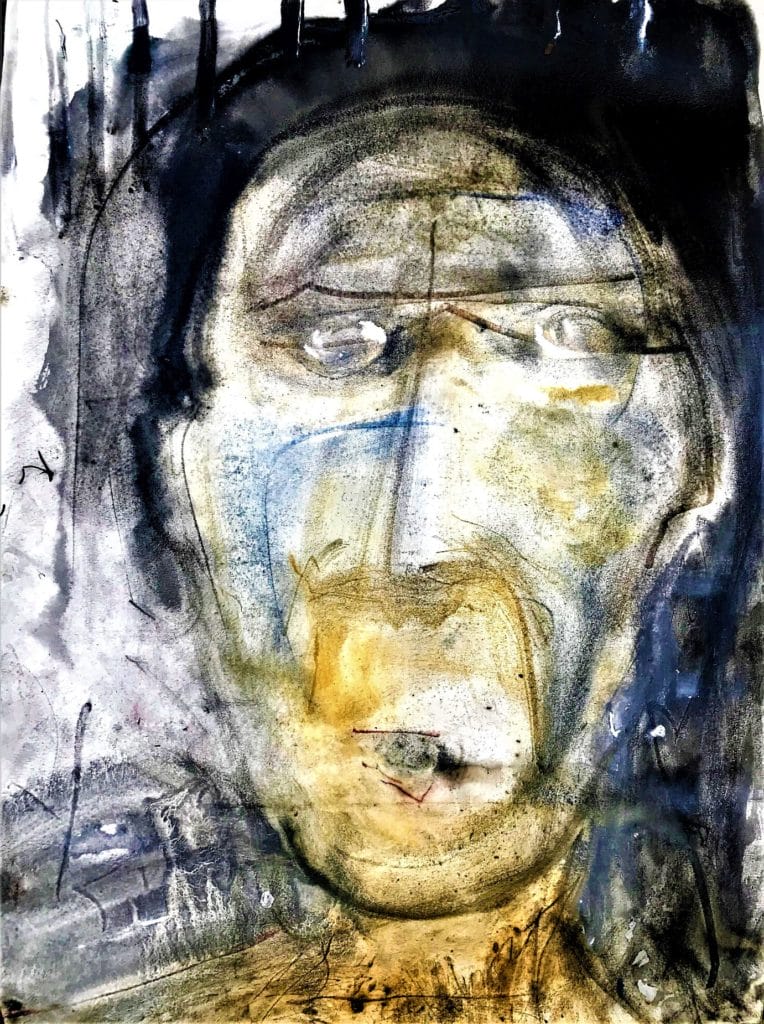Never Finished
Fast/efficient—I was competent in both. Each task was prepped and aligned to reduce wasted time and eliminate unnecessary arm, leg, head, and hand movements. Every action was gauged against an internal stopwatch. I successfully turned daily living into an obstacle course race with a satisfying red pencil finish line crossed through each to-do list item. My heroes were robots, sleek purveyors of performance perfection. They got the job done.
In my first week as an art handler at the Brooklyn Museum, I was tasked with cutting individual archival storage mats for their extensive collection of John Singer Sargent watercolors. Easy. “Measure twice, cut once,” I was advised. Not likely. I immediately reconfigured the poorly set up frame room, creating a mat board—cutter—artwork assembly line. I could now accomplish the cutting with just a quarter-turn of my body.
In poetry, there is a moment called a “turn” where something unexpected is introduced that changes everything. Opening the first portfolio of art was like pulling back a curtain, being struck breathless. Gone was the tidy frame room. I was gliding along the dappled waters of Venice, finding a bit of shade against a mossy bank, silenced by the play of light across the beautiful façade of Saint Mark’s Basilica. With each watercolor, I was transfixed. Rapid strokes, translucent to opaque brushed dabs of color, created infinite moments. I felt I saw directly through the artist’s eyes.
Nearly nothing got done. Maybe one or two mats an hour. My shame was mixed with wonder and hunger for more beauty, more journey. Day after day, I toured Venice.
“How is it going with the matting?” Sarah Fay, the seasoned curator of the collection, inquired a month into my employment. No lie could explain why I’d only gotten a tiny fraction of the massive collection safely into their mats. I fully confessed my greedy fixation, this unproductive love affair.
She gazed at me, her eyes narrowed. I waited for the inevitable, “You’re fired!”
“Isn’t it marvelous,” she said, “that moment when you realize that our job in life never really was to ‘get it done.’ Our job is to fully live it, let it wash over us, wave after wave. That’s why we’re here.”
I followed her gaze, gently taking in our surroundings. Our eyes caressing each carved pilaster, gliding further upward into the airy, sunlit dome of the museum’s vaulted marble ceiling. Finding a space where breath itself is sacred, where the one and only responsibility is simply to be.
Slow now, and even older than Sarah was back then, I see how that turn in my life touched every aspect of my existence. Slow to taste each morsel, slow to let go of the hand of a friend, slow to leave a moment full of generous giving. There is no race except the one you create. Measure twice, cut once. Take your time. I promise you, what needs to get done has already happened.
Lou Storey is an artist and psychotherapist living on the edge of coastal New Jersey with his husband of thirty-three years Steve, and a happy bounty of dogs, cats and chickens. Lou’s writings have appeared in The New Yorker, New York Times Tiny Love Stories, as well as an assortment of poetry magazines and various academic journals related to mental health.




